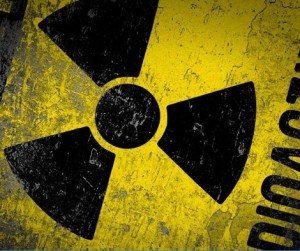 Video showing an Alaskan wild grizzly bear that runs uphill and then suddenly dies from an heart attack was caught on camera at Kodiak Island, Alaska, USA.
Video showing an Alaskan wild grizzly bear that runs uphill and then suddenly dies from an heart attack was caught on camera at Kodiak Island, Alaska, USA.There have been many, many reports of strange animal deaths this past year and the most recent one from Alaska is the wild grizzly bear the simply drops dead in it's tracks.
The amounts of Cesium-137 and 134 to name a few radioisotopes from the Fukushima Nuclear Disaster have been so great that we are already seeing massive deaths of animals in both the Pacific Ocean and on the Coasts where radiation have become more concentrated.
To date some 300.000 Tons of radioactive reactor water at about 300-400 tons each day have been flowing into the Pacific Ocean with no end in sight in an desperate attempt to cool the fuel pools and meltdowns.
Cesium in particular is a known cause of heart attacks. Cesium-137 is a potassium analog so it gets absorbed by the body the same way potassium is. Cesium-137 tends to concentrate in the heart muscle and cause heart attacks.
It can't be excluded that this bear died from an virus infection or disease instead of radioactive Cesium stored in it's heart. However the bear did not act in any strange manner before the death either, the bear did not show any such symptoms. It simply got exhausted running up the hill and died on the spot.
News from Alaska
Nov. 26
"Expansive ‘death zone’ of birds on Alaska island, perhaps thousands washed ashore.Resident: Radiation’s always on the backs of our minds"
www.alaskadispatch.com/article/20131126/hundreds-dead-seabirds-wash-ashore-alaska-island-bering-sea
Nov. 18
28% of polar bears with skin lesions & hair loss, thyroids tested by gov’t… like symptoms in seals & walrus. Surprisingly high mortality of musk ox, weak immune system suspected. High rate of embryo deaths & bad eggs for geesehttps://alaska.usgs.gov/science/biology/wildlife_disease/index.php
https://alaskafisheries.noaa.gov/protectedresources/strandings.htm#about
Nov. 14
US Gov't: Alaska island "appears to show impacts from Fukushima" - "Significant cesium isotope signature" detected -- Scientists anticipate more marine life to be impacted as ocean plume arrivewww.doe.gov/lm/articles/biological-monitoring-amchitka-appears-show-impacts-fukushima-dai-ichi-incident
https://www.lm.doe.gov/Amchitka/S08833_Biological_Monitoring.pdf
Nov. 3
CBC Headline: Radiation from Fukushima arrives on Alaska coast. University scientists concerned "Is the food supply safe? I don't think anyone can really answer that"www.cbc.ca/news/canada/north/radiation-from-japan-nuclear-plant-arrives-on-alaska-coast-1.2335668








No comments:
Post a Comment